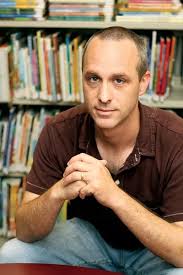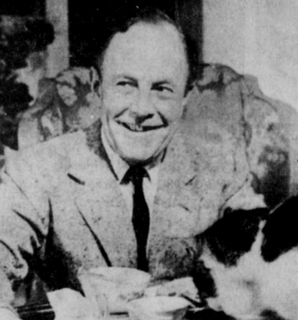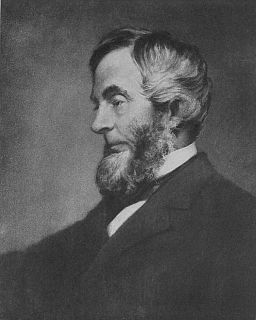A Quote by Margaret Fuller
Most marvelous and enviable is that fecundity of fancy which can adorn whatever it touches, which can invest naked fact and dry reasoning with unlooked-for beauty, make flowers bloom even on the brow of the precipice, and, when nothing better can be had, can turn the very substance of rock itself into moss and lichens. This faculty is uncomparingly the most important for the vivid and attractive exhibition of truth to the minds of men.
Related Quotes
Men are rather reasoning than reasonable animals for the most part governed by the impulse of passion. This is a truth well understood by our adversaries who have practised upon it with no small benefit to their cause. For at the very moment they are eulogizing the reason of men & professing to appeal only to that faculty, they are courting the strongest & most active passion of the human heart - VANITY!
There are various orders of beauty, causing men to make fools of themselves in various styles, from the desperate to the sheepish; but there is one order of beauty which seems made to turn the heads not only of men, but of all intelligent mammals, even of women. It is a beauty like that of kittens, or very small downy ducks making gentle rippling noises with their soft bills, or babies just beginning to toddle and to engage in conscious mischief — a beauty with which you can never be angry, but that you feel ready to crush for inability to comprehend the state of mind into which it throws you.
Though beauty is, with the most apt similitude, I had almost said with the most literal truth, called a flower that fades and dies almost in the very moment of its maturity; yet there is, methinks, a kind of beauty which lives even to old age; a beauty that is not in the features, but, if I may be allowed the expression, shines through them. As it is not merely corporeal it is not the object of mere sense, nor is it to be discovered but by persons of true taste and refined sentiment.
I would call the attention of the reader to the difference between "reason" and "reasoning." Reason is a light, reasoning a process. Reason is a faculty, reasoning an exercise of that faculty. Reasoning proceeds from one truth to another by means of argumentation. This generally involves the whole mind in labor and complexity. But reason does not exist merely in order to engage in reasoning. The process is a means to an end. The true fulfillment of reason as a faculty is found when it can embrace the truth simply and without labor in the light of single intuition.
Nicholas Benedict did have an exceptional gift for knowing things (more exceptional, in fact, than most adults would have thought possible), and yet not even he could know that this next chapter was to be the most unusual-and most important-of his entire childhood. Indeed, the strange days that lay ahead would change him forever, though for now they had less substance than the mist through which he ran.
The Reader may here observe the Force of Numbers, which can be successfully applied, even to those things, which one would imagine are subject to no Rules. There are very few things which we know, which are not capable of being reduc'd to a Mathematical Reasoning, and when they cannot, it's a sign our Knowledge of them is very small and confus'd; and where a mathematical reasoning can be had, it's as great folly to make use of any other, as to grope for a thing in the dark when you have a Candle standing by you.
But they that hold God to be [an incorporeal substance]do absolutely make God to be nothing at all. But how? Were they atheists? No. For though by ignorance of the consequence they said that which was equivalent to atheism, yet in their hearts they thought God a substanceSo that this atheism by consequence is a very easy thing to be fallen into, even by the most godly men of the church.
Last summer I was staying at a house in Hampshire which was famous for the brilliance and the originality of its gardens. There were many of them, but the most beautiful of all was a walled garden in which every flower was blue. There were all the obvious things like delphiniums and acronitums and larkspurs, but the most beautiful blue of all came from the groups of cabbages - the ordinary blue pickling cabbage. Set against the blazing blue of the other flowers, it had a bloom and elegance which made it a thing of the greatest delight.
It was the upward-reaching and fathomlessly hungering, heart-breaking love for the beauty of the world at its most beautiful, and, beyond that, for that beauty east of the sun and west of the moon which is past the reach of all but our most desperate desiring and is finally the beauty of Beauty itself, of Being itself and what lies at the heart of Being.
Nothing can be more unphilosophical than to be positive or dogmatical on any subject; and even if excessive scepticism could be maintained it would not be more destructive to all just reasoning and inquiry. When men are the most sure and arrogant, they are commonly the most mistaken, and have there given reins to passion, without that proper deliberation and suspense which can alone secure them from the grossest absurdities.
The knowledge of an unlearned man is living and luxuriant like a forest, but covered with mosses and lichens and for the most part inaccessible and going to waste; the knowledge of the man of science is like timber collected in yards for public works, which still supports a green sprout here and there, but even this is liable to dry rot.
The parts that embarrass you the most are usually the most interesting poetically, are usually the most naked of all, the rawest, the goofiest, the strangest and most eccentric and at the same time, most representative, most universal... That was something I earned from Kerouac, which was that spontaneous writing could be embarrassing... The cure for that is to write the thing down which you will not publish and which you won't show people. To write secretly... so you can actually be free to say anything you want.




































